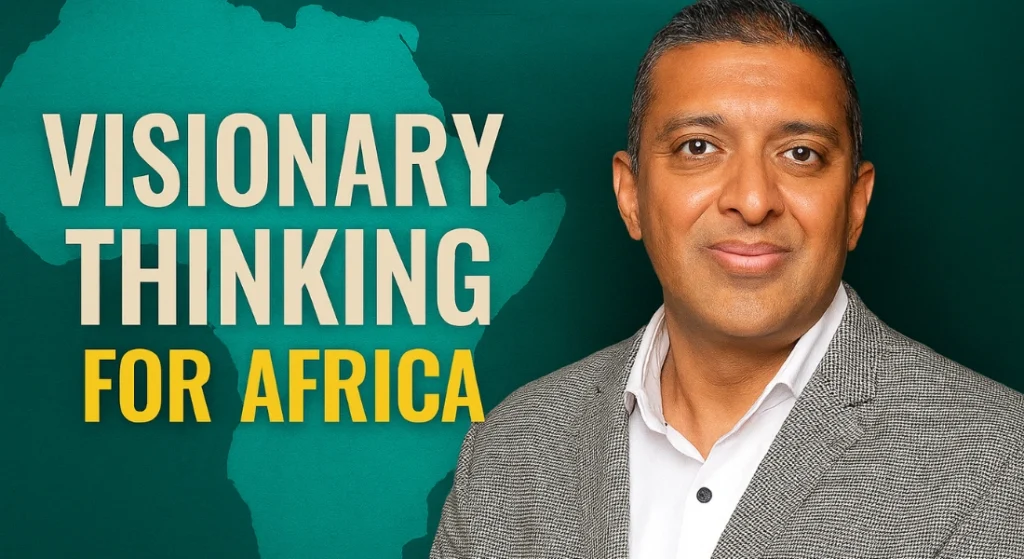Africa is at a crossroads. In a fast-moving global AI race, Accenture’s Nitesh Singh says the continent must leap into action—by embracing digital reinvention, rethinking policy, and investing in skills and data. Will Africa lead—or lag?
Key Takeaways:
- AI must be strategic, not trendy—isolated pilots won’t move the needle.
- Clean, structured data is essential for real AI transformation.
- Outdated telco regulations & overtaxation are throttling growth.
- Local device manufacturing could lower costs and boost jobs.
- Policy alignment and youth education are key to digital readiness.
Africa can’t afford to wait.
That’s the message from Nitesh Singh, Managing Director for Communications, Media, and Technology at Accenture, in a candid conversation on the TechAfrica News Podcast. As the continent stands at the threshold of a global AI revolution, Singh makes a compelling case for why Africa must act decisively—or risk getting left behind.
With over two decades of telecom and tech experience, Singh doesn’t mince words. From lagging infrastructure and poor data readiness to crippling regulatory hurdles, he paints a clear picture of the structural headwinds holding Africa back. But alongside these challenges, he sees unprecedented opportunity—if the right levers are pulled.
“Africa is solving problems for the world,” Singh says. “Now we need to scale those solutions.”
AI: Strategy First, Not Hype
At the core of Accenture’s digital transformation model is what Singh calls “total enterprise reinvention,” powered by AI, cloud, and structured data. But too many organizations in Africa, he warns, chase fragmented AI experiments without a unifying strategy.
“Without a clear value proposition,” Singh notes, “AI won’t deliver lasting impact.”
It’s not about blindly adopting the next trend. It’s about building a digital core that’s scalable, measurable, and embedded across business functions.
Data: Africa’s Untapped Power Source
AI is only as smart as the data behind it. Unfortunately, Singh reveals that most African enterprises are working with unstructured, messy data.
The real investment, he says, lies not in hardware or flashy tools—but in understanding and engineering data. However, this is where another gap appears: talent.
“There’s a serious shortage of data engineers and data scientists,” Singh explains. “That’s a major bottleneck.”
Telcos: Vital but Undervalued
Singh reserves sharp criticism for how African governments treat their telecom sectors. While telcos are central to digital access, they’re overburdened with taxes and hampered by outdated regulations.
“In Nigeria alone, telcos face over 30 separate taxes,” Singh points out.
He urges policymakers to stop treating telecoms as cash cows. Lower taxes and pro-growth policies could expand coverage, accelerate GDP growth, and create jobs.
Bridging the Device Divide
The affordability of devices is another major hurdle. Singh points out that Africa imports nearly all its tech devices, which keeps prices high and access low.
His solution? Local manufacturing.
“If we can manufacture smartphones or chipsets in Africa, we can cut costs, create employment, and spur innovation in sectors like agriculture and finance,” Singh says.
Yet weak infrastructure and political uncertainty continue to deter investors.
Education for a Digital Future
When it comes to youth and education, Singh calls for a new approach. Yes, AI should be integrated into classrooms. But not as a crutch.
“It’s not about outsourcing thought,” he emphasizes. “It’s about enhancing how we learn and think.”
AI should augment, not replace, human intelligence—and students must be taught how to use these tools ethically and effectively.
Governance: The Missing Puzzle Piece
No digital transformation can succeed without policy alignment and regional cooperation. Singh cites persistent visa barriers, stalled continental integration, and a lack of accountability metrics as major setbacks.
“There must be consequences for failure,” he stresses. Governments need to track connectivity progress and hold themselves to measurable standards.
But despite these hurdles, Singh’s tone remains hopeful. He believes Africa’s telcos are some of the best in the world, and its innovators have already reshaped finance through mobile money.
Now, it’s time to scale that success continent-wide.
“The future isn’t being built somewhere else,” Singh concludes. “It can be built here—if we act now.”
